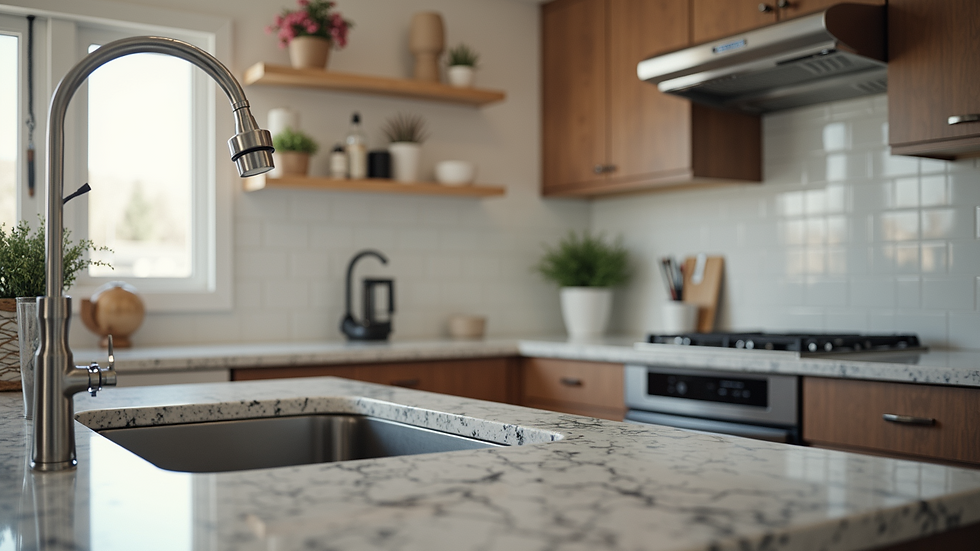A Comparison of Vinyl Flooring and Laminate Flooring
- Jul 17, 2023
- 2 min read
Vinyl flooring and laminate flooring are two popular options for homeowners looking for durable and versatile flooring materials. Here are the main differences between the two:
1. Composition: Vinyl flooring is made from synthetic materials, primarily PVC (polyvinyl chloride) or a combination of vinyl and other polymers. Laminate flooring, on the other hand, is composed of multiple layers of wood-based materials, such as high-density fiberboard (HDF) or particleboard, with a photographic layer on top.
2. Appearance: Vinyl flooring often replicates the look of natural materials like wood or stone using advanced printing technologies. It can come in a wide variety of colors, patterns, and textures. Laminate flooring also offers a range of designs, including wood, stone, and tile patterns. However, laminate flooring typically has a more pronounced textured surface that mimics the feel of real wood.
3. Installation: Both vinyl and laminate flooring can be installed as floating floors, which means they are not directly glued or nailed to the subfloor. However, the installation methods differ. Vinyl flooring is available in various forms, including sheets, tiles, or planks, and can be installed using adhesive or as interlocking pieces. Laminate flooring usually comes in planks or tiles with a click-and-lock system that allows for easy installation without the need for adhesive.
4. Water Resistance: One of the key advantages of vinyl flooring is its excellent water resistance. Vinyl is inherently waterproof, making it suitable for areas prone to moisture, such as bathrooms and kitchens. Laminate flooring, while not completely waterproof, has varying degrees of water resistance. It can withstand minor spills and moisture but is more susceptible to water damage if exposed to excessive moisture or standing water for extended periods.
5. Durability: Both vinyl and laminate flooring are known for their durability, but vinyl is generally considered more resilient. Vinyl flooring is highly resistant to scratches, stains, and dents, making it a suitable choice for high-traffic areas. Laminate flooring is also durable, but it can be more susceptible to scratching and may require additional care and maintenance to protect its surface.
6. Comfort: Vinyl flooring has a relatively softer and more cushioned feel underfoot compared to laminate flooring. It provides a bit of resilience and is warmer to the touch. Laminate flooring, although it can be installed over underlayment for added comfort, tends to be harder and less forgiving.
7. Price: In terms of cost, vinyl flooring and laminate flooring can vary depending on the quality and brand. Generally, laminate flooring is slightly more affordable than vinyl flooring, although premium laminate options can be comparable in price to some vinyl products.
When choosing between vinyl and laminate flooring, consider factors such as your budget, location within your home, desired aesthetics, and maintenance requirements to determine which option best suits your needs.





Comments